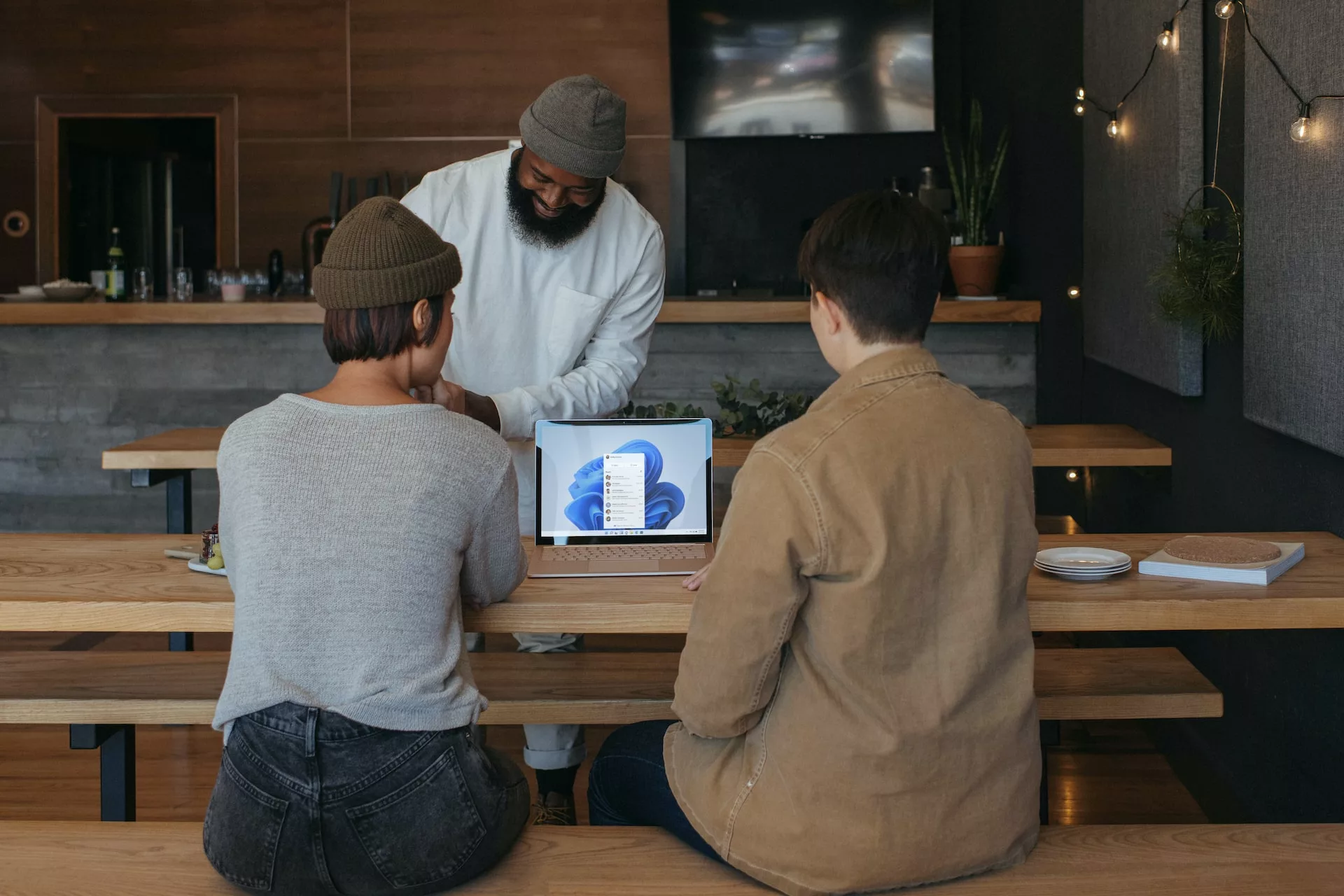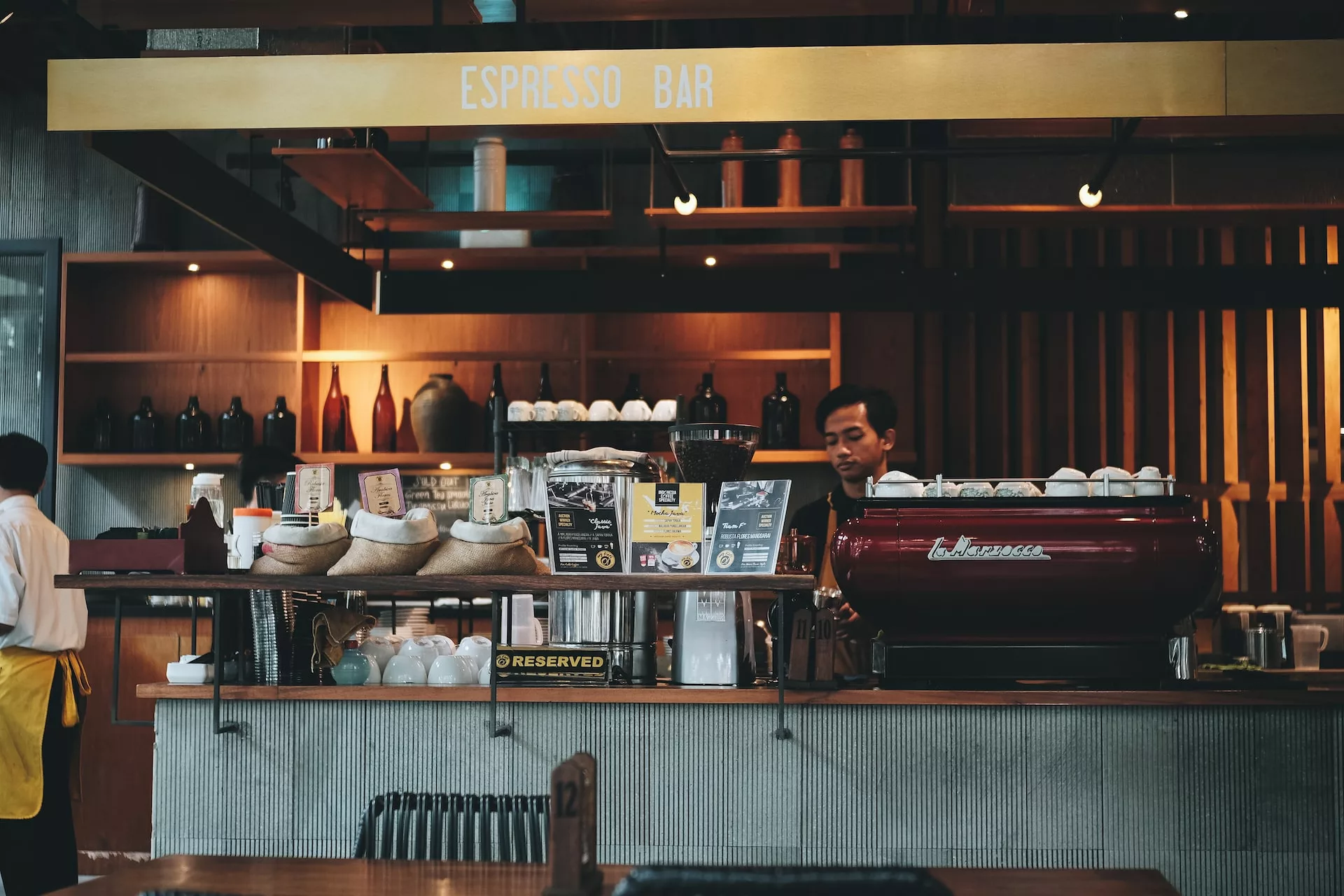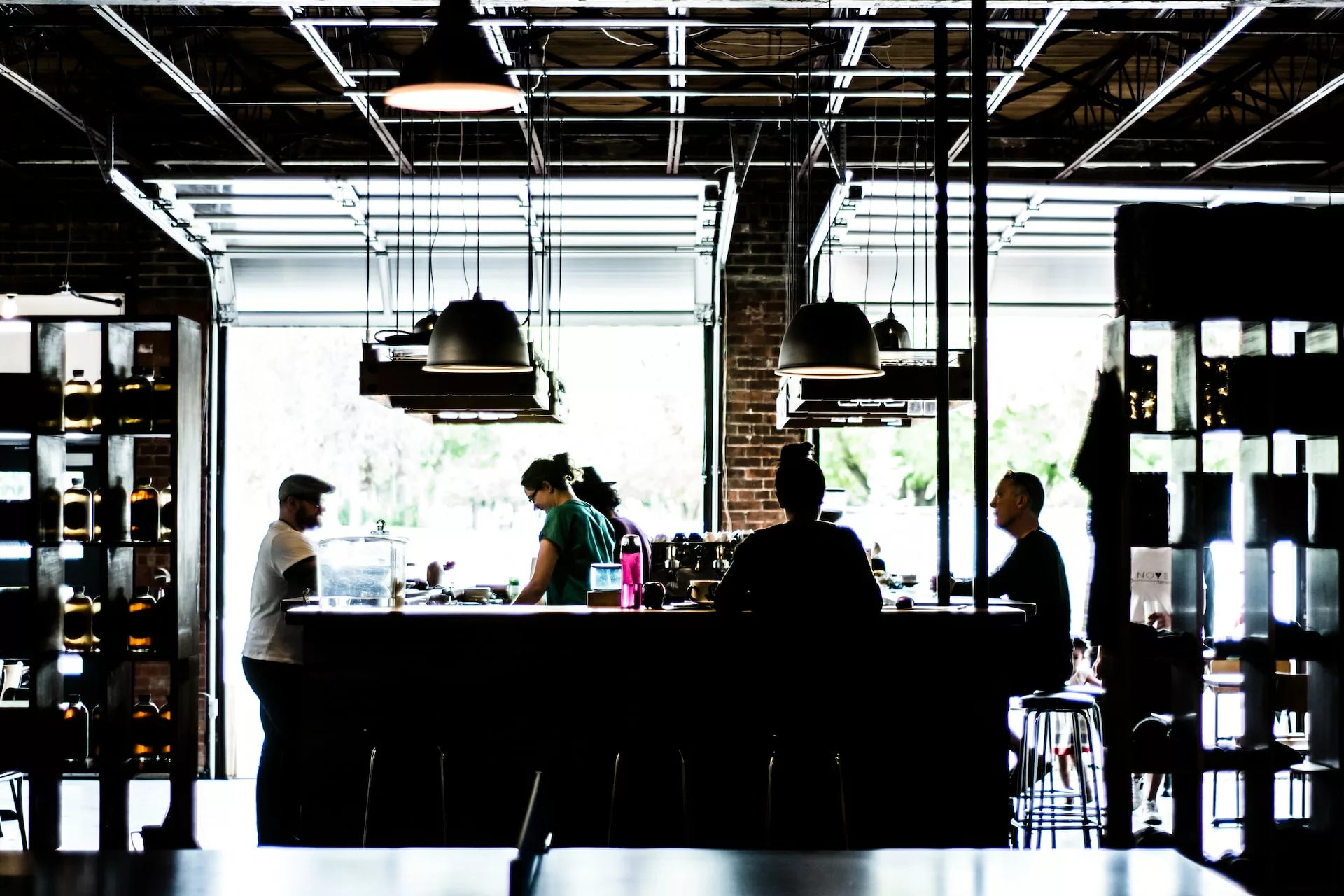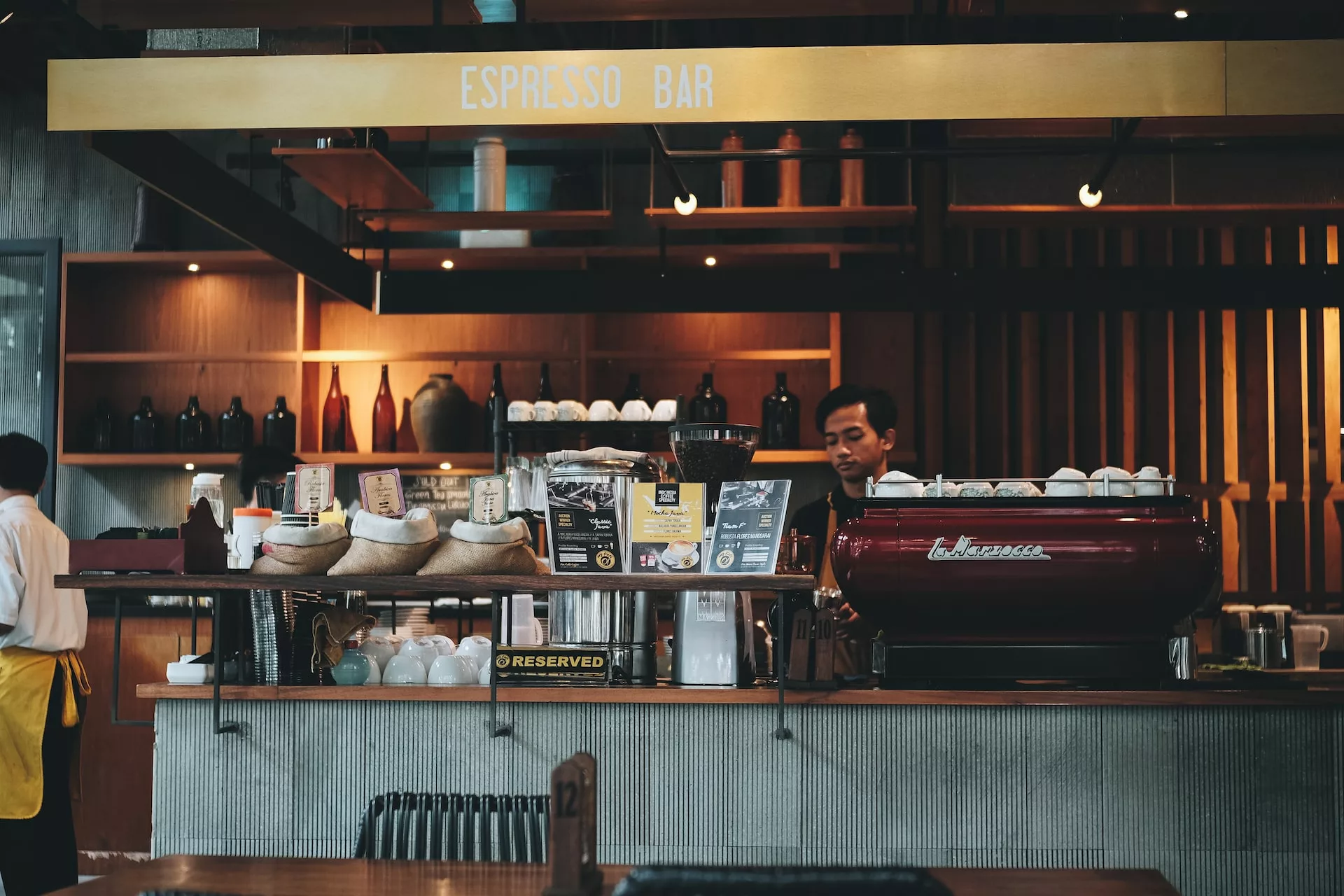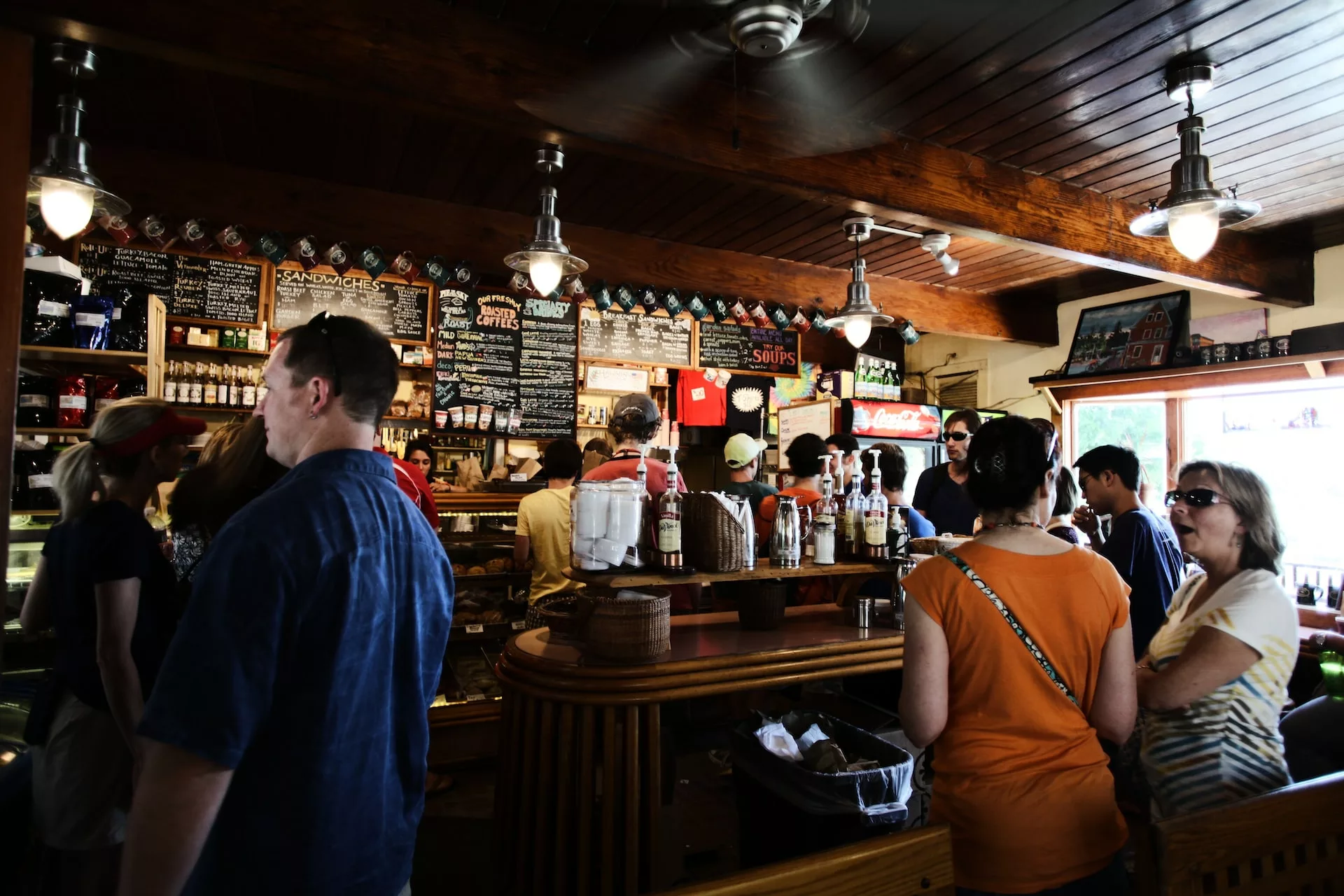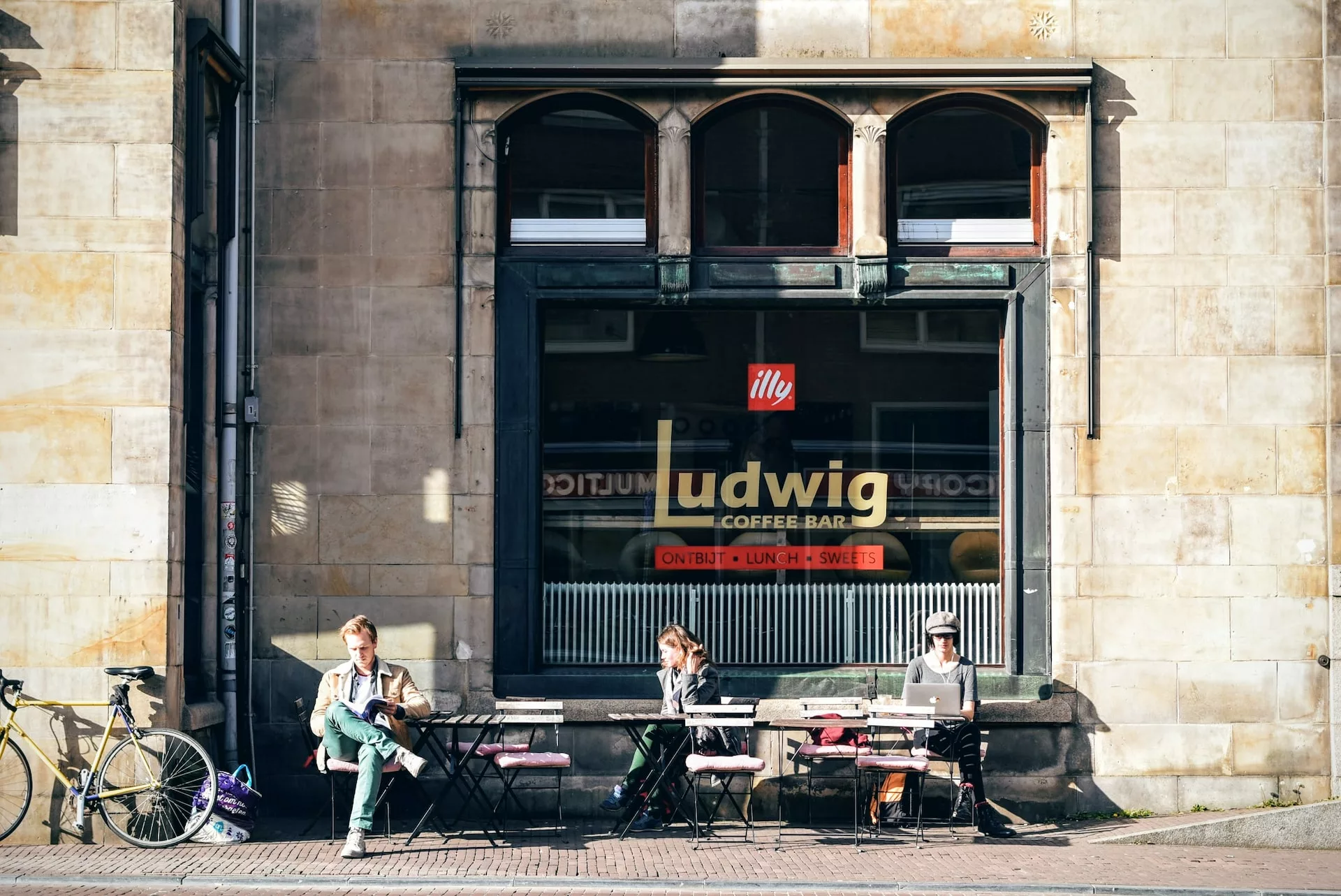Are you ready to start your own coffee shop? Opening a coffee shop may seem like a daunting task, but with the right support and guidance, it can be an incredibly rewarding experience for entrepreneurs. In this blog post, we’ll cover everything you need to know about starting up a successful coffee shop – from choosing your location, analyzing the competition and creating an effective marketing strategy – so that you can hit the ground running towards having your very own café! Keep reading if you’re looking for tips on getting started in the world of local espresso shops.
Plan your business before you open
Starting a coffee shop of your own can be an exciting and rewarding experience — but it’s also one that requires time, dedication and planning. Before taking the plunge into this venture, it’s essential to ensure you have a well-researched plan in place which considers the practical elements such as budgeting, premises and equipment requirements, as well as the further-reaching elements like marketing activities, staffing numbers and the competition in your area.
While setting up a coffee shop may seem overwhelming, there are several steps you can take to make sure you’re fully prepared for success. First, create a roadmap for your business by setting out initial goals that you’d like to achieve within a certain timescale. Use this roadmap to map out any areas where additional research is needed.
Secondly, calculate how much money you’ll need to get started: do some budgeting around start-up costs such as purchasing equipment and premises rent/mortgage payments. It’s also important to consider ongoing costs such as utilities (electricity/gas), supplier costs (coffee beans/milk/pastries) and insurance premiums. It’s essential that these costs make financial sense from an operational point of view before opening your doors to customers.
Thirdly, decide which type of space would best suit your needs; will you be based in an existing premises or are there other options available? Consider factors like local demographics when assessing potential sites for your new business — is it located in an area with good footfall ? Would there be enough customers close by? Does the area offer good parking facilities? Also assess any competitors nearby that could potentially affect sales from day one — if so what strategies will you employ to stand out from them?
Fourthly, decide on the style of service you’ll offer: Will it be sit-in with table service or purely takeout? Consider other elements such as ambience – will there be comfortable seating areas or live entertainment? Do you plan on offering loyalty incentives such as discounts or competitions? All these details should be worked into operation plans right away so they can be implemented quickly upon opening your coffee shop.
Finally think about who will help bring your vision to life — staff members , baristas etc — and determine what staff structure makes most financial and operational sense at this stage e.g full time / part time etc . Research local job sites and talent pools for suitable candidates who suit your planned workforce needs for the next 12 months at least .
By investing the required time into creating a comprehensive plan before starting up a coffee shop business , not only will it help increase chances of success , but also give peace of mind knowing that all eventualities have been considered . Taking these steps at the outset should mean more room for creativity down the line – meaning more growth potential and less unwanted surprises !
Location, location, location
Opening a coffee shop can be a dream come true for many entrepreneurs. But one of the most important decisions to make is choosing the right location. The success of a coffee shop depends on its location; while it may take some time and research, finding the perfect spot could be the difference between your business succeeding or failing. Here are some tips for choosing the right location for your coffee shop.
First, consider your target audience when picking a spot. Who do you want to attract? Young professionals living in city center apartments? Hipsters in the trendy part of town? Or suburban families looking for a casual place to socialize with friends and family? Knowing who you’re catering to will help narrow down your choice of locations.
Next, take into account population density and foot traffic in different areas. If there’s already several popular cafes or coffee shops around, can you compete with them? How much competition is already in that area? Do some research before investing to ensure that there are enough people in your target demographic living close by who will patronize your business.
Thirdly, think about how accessible your location is – both by car and by foot. Is it near public transportation hubs like train stations or bus stops? Is there parking available? Will potential customers be able to find it easily without getting lost or having trouble locating it? The more accessible it is, the more likely shoppers will be willing to visit you instead of going somewhere else.
Finally, budget plays an essential role here too; rent prices and overhead costs vary from place to place so keep track of what similar businesses in the area are charging and make sure you don’t overspend on real estate costs that could put too much strain on cash flow.
Choosing the right location for your coffee shop is an important decision with far-reaching consequences – thankfully these tips should provide some guidance as you start searching for that perfect spot! With proper planning and strategizing, you’ll soon have customers lining up out the door and be well on your way towards making your dream come true!
Get the word out there
Marketing your new coffee shop can be a daunting task, especially when you’re just getting started. You want to get the word out about your business and make sure that it is profitable. But marketing an establishment can be difficult, expensive, and intimidating – so how do you ensure success?
The first step in any successful marketing campaign for your coffee shop is to establish your brand. Your logo should be clear and recognizable, as well as memorable enough that customers think of it when they come across it again. Additionally, the design should match and support the type of atmosphere you are trying to create at your shop: minimalistic yet cozy? Bold and vibrant? Whichever style you choose, make sure it reflects your core values while simultaneously appealing to potential customers.
Once you have settled on a visual identity for your shop, consider using more traditional methods of advertising such as flyers, posters or newspaper ads (if allowed). The advantage of these methods is that they cover a wide geographical area quickly but can lack personalization; however if done right they can get plenty of attention from passersby or people living nearby who might be interested in checking out what you have to offer.
Social media platforms like Facebook, Twitter and Instagram are powerful tools to help promote your new venture with minimal cost and effort. Create accounts for each platform specifically tailored for your business—make sure to use relevant visuals such as photos from inside the café or of customers enjoying themselves! Be sure to fill out all information fields carefully so people can find out about events taking place at the shop or news about discounts or promotions available exclusively online. Make sure you post frequent updates to keep people informed about what’s going on with the café and include calls-to-action such as “Follow us now!” this way users will feel compelled to join in on upcoming activities.
Finally, word-of-mouth advertising is often underrated but extremely valuable when it comes time to start spreading awareness about your business. Talk up the café whenever appropriate—on social media sites like Yelp or TripAdvisor; in conversations around town; even among friends who may not live nearby but could still provide helpful feedback (or even share a promotional photo!). Publicize special offers or unique dishes on offer; this works particularly well if they’re only available temporarily (e.g., “try our 4th of July Frappuccino now!”) People love feeling included in exclusive offerings like these and may even talk about their experience at the café—which is invaluable free publicity for you!
These are just some ideas for how you can market a new coffee shop successfully without breakin the bank! With careful planning, creative promotion strategies and engaging content—you’ll soon be an expert barista in no time!
Invest in quality coffee and equipment
Investing in quality coffee and equipment is essential when starting a new coffee shop. Not only will it reflect the quality of your business and generate more customers, but it can also help keep costs down in the long run. There are many factors to consider when choosing the right products for your café, so here are some tips to keep in mind before making any purchases.
First, make sure you are buying fresh, high quality beans. Coffee beans lose flavor over time after roasting and can become stale or acidic if stored improperly; so make sure your beans have been recently roasted and make sure to store them correctly. If possible, research reputable companies online that sell freshly roasted beans. Additionally, you should check out reviews from other customers who have already bought from them – this way you know you’ll be getting the best quality product available.
Second, invest in the right brewing equipment for your shop. You don’t want to be stuck with outdated models or cheaply made appliances that could break down often or produce subpar results. Check out espresso machines specifically designed for specialty cafes as they may include useful features such as temperature control and pre-programmed drinks settings; additionally, these machines usually come with warranties which could save you money in repairs or maintenance over time.
Thirdly, purchase other relevant accessories such as grinders (manual or electric), filter paper systems and even storage containers – all of which can help ensure that each cup of coffee you serve is perfectly brewed every single time! Investing in these items now instead of later could mean a big difference when it comes to consistency and customer satisfaction – so don’t forget about this step during setup!
Finally, think about investing in training for yourself and any staff members who will be operating the espresso machine or helping make drinks at your cafe. Proper technique is essential if you want to get the most out of every cup – from grinding beans properly to steaming milk correctly. Many local barista schools offer classes specifically for those looking to enter into the coffee industry; alternatively there are several online courses offered by experienced baristas which might fit better into busy schedules!
In conclusion, investing in quality coffee and equipment is paramount when starting a new coffee shop: not only does it create a good first impression among customers but also ensures that all beverages served meet their expectations! Make sure to spend some time researching suppliers based on customer feedback then choose appropriate tools based on desired features, cost & size considerations – this way you guarantee optimal performance while remaining budget conscious at all times!
Keep up with trends
Keeping up with the trends is essential when starting a new coffee shop. The café industry is constantly changing, so it’s important to stay on top of what’s popular so you don’t miss out on potential coffee shops customers. Here are some tips for keeping your café up-to-date and competitive in an ever-evolving industry:
One of the most crucial aspects of setting up a successful coffee shop is finding a niche that sets you apart from the competition. Research current trends and find out what your target demographic wants then create unique offerings that cater to their needs (e.g., vegan options or special flavors). If possible, get feedback from potential customers on what they would like to see and incorporate that into your menu. Taking this approach will not only make your café stand out but also keep it relevant in an ever-changing climate!
It’s also important to pay attention to what other cafés are doing and how they’re marketing themselves – especially locally owned shops as they tend to offer more personalized services than national chains. Take note of any new techniques these businesses use for promotion (e.g., loyalty programs, special events, etc.) or strategies for gaining customer loyalty—then implement those same tactics at your own store!
Staying ahead of the curve means staying up-to-date on technological advancements that can help streamline operations and improve customer experience – such as using tablets for taking orders or having a mobile app where people can pre-order drinks before they arrive at the coffee shop. This way customers won’t have to wait long periods of time in line and can have their beverage ready right away – saving them time and making them likely return customers!
Finally, focus on building relationships between yourself and your regulars– whether it be through original merchandise (like t-shirts or mugs), social media contests/giveaways or even simply offering free drinks once in a while! People appreciate being appreciated and may even tell their friends about your store; after all word-of-mouth advertising is one of the most powerful marketing tools in today’s age!
Staying ahead of trends by researching current market demands, learning from others’ success & failures, utilizing technology effectively as well as creating genuine relationships with patrons can all be key factors when attempting to set up & operate a successful coffee shop in today’s highly competitive marketplace!
Train your staff well
When starting a new coffee shop, training your employees is essential for providing quality service and achieving long term success. Not only will it ensure that each drink is made with the same level of accuracy and consistency, but it can also help create a positive atmosphere for customers which could lead to more loyal patrons in the future. Here are some tips on how best to prepare and equip your staff:
First, draw up an outline of the training process that covers all aspects of café operations: from customer service etiquette to proper espresso machine techniques. Make sure to include any relevant safety regulations as well as sanitizing protocols – this way you can guarantee that everyone is aware of their responsibilities while they’re in the workplace! Additionally, try using interactive methods such as role-playing scenarios or quizzes to gauge comprehension levels; this will not only make learning more interesting but will also keep staff engaged during class.
Second, invest in high-quality tools such as electric grinders and espresso machines that are specifically designed for specialty cafes. These products are usually pricier than commercial models but come with extra features (e.g., temperature control) that can help ensure drinks are produced correctly every time. Providing employees with these types of resources from the get-go can help save time & money when trying to achieve consistent results; additionally, many manufacturers offer warranty services so don’t forget to take advantage of those if possible!
Thirdly, train your staff on proper communication techniques when interacting with customers. Make sure they know how to greet guests properly without being overly intrusive and also how to respond if someone has a complaint or suggestion about their drink – these skills are especially important if you want your cafe to stand out from other competitors in town! At the very least, ensure that all employees understand basic customer service terms such as “please” & “thank you” – these small phrases can go a long way when creating positive experiences for customers!
Finally, don’t forget about providing marketable skills such as latte art technique or barista competitions; these activities can not only provide tangible skills for job seekers but also serve as stress relief after a long shift! A bit of friendly competition among coworkers could lead to improved morale which could eventually translate into customer satisfaction – plus it might just be fun too!
Training your staff is key when setting up a new coffee shop – not only will it guarantee top-notch results each time but it could also lead to higher customer satisfaction ratings & loyalty in the long run! Keep in mind the points mentioned above plus strive for engaging educational activities by incorporating real life scenarios into instruction – this way you can rest assured knowing everyone at your cafe is always prepared & educated on how best serve their guests!
With the right plan and strategies in place, you can accelerate your coffee shop startup and give yourself the best chance of success. The tips outlined above will help you hit the ground running and make sure your business takes off. The most important thing is to have a clear roadmap, outline the necessary steps, and take action to make your dreams of owning a coffee shop come true.
More Coffee Shop Articles
Should I find a partner for my new Coffee Shop?
Launching a coffee shop can be an overwhelming task, especially if you have limited resources. Finding the right partner can be an invaluable asset to your business and help you reach your goals faster. In this post, we’ll discuss when it’s a good idea to find a partner for your coffee shop business.
What Professional Services Do I Need to Start My Coffee Shop?
Starting a coffee shop is a big undertaking, and it’s important to make sure you have the right professional services in place. In this post, we’ll explore what services you need to help make your dream of owning a coffee shop a reality.
5 Secrets to Local Marketing for My Coffee Shop
Local marketing is the key to success for any small business – especially a coffee shop. In this post, we uncover five tips and tricks that can help drive more customers through your door and boost your revenue.
Reducing Risk: Insurance Options for My Coffee Shop
Choosing the right insurance coverage for your coffee shop is an important part of reducing risk and protecting your business. Taking time to review available options and weigh the costs against potential risks can help ensure that you have the best coverage possible.
How Do I Get a Business License for My Coffee Shop?
Are you planning to open your own coffee shop? Make sure you know how to get a business license first! This post will explain step-by-step how to get the right license for your bustling cafe.
How Do I Find the Right Location for My Coffee Shop?
Opening a coffee shop is a big decision, and it all starts with finding the perfect location. In this post, we’ll take a look at what goes into choosing the ideal spot for your coffee shop business.
5 Mistakes Coffee Shop Entrepreneurs Make
Starting a coffee shop can be a daunting but rewarding task. But without the proper preparation, entrepreneurs can easily make mistakes that could prevent them from achieving success. This post covers five common pitfalls coffee shop owners should look out for to ensure they do not fall victim to them.
How to Find Funding to Start a Coffee Shop
Are you ready to become your own coffee shop owner? There are many ways to finance a new business, and this post will discuss how to find funding for your coffee shop dreams.
How do I name my coffee shop?
Choosing the perfect name for your coffee shop is a crucial step in the journey to launching your business. In this post, we’ll explore tips and tricks for finding the perfect name that will help you stand out from the competition.

